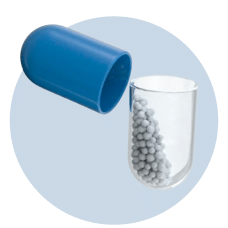Cutihyde Cream
Product introduction
Cutihyde Cream is used in the treatment of melasma. It is a skin-lightening medicine that lightens the darkened skin patches and spots(hyperpigmentation). It reduces the amount of skin-darkening pigment called melanin in the skin. It helps in reversible depigmentation of the skin.
Cutihyde Cream is for external use only. You should use it in the dose and duration as advised by your doctor. You must wash your hands thoroughly before and after applying this medicine. This medicine should be used regularly to get the most benefit from it. Do not use more than you need as some side effects may be increased.
Cutihyde Cream has a few potential side effects but not everyone will get them. These may include dry skin, itching, skin burn, skin peeling, and skin redness. Serious allergic reaction to this drug is rare but let your doctor know if you’re bothered by side effects or they do not go away. Make sure you read the instructions that come with your medicine. Avoid contact with eyes. In case of accidental contact, you should rinse your eyes thoroughly with water.
You can start applying Cutihyde Cream to a small portion of unbroken skin or near the pigmented area for a period of several days for checking an allergic reaction. You should discontinue it if itching, excessive inflammation, or swelling occurs. Pregnant women should consult their doctor before taking this medicine. If no improvement is seen after two months of treatment, the use of this product should be discontinued.
Cutihyde Cream is for external use only. You should use it in the dose and duration as advised by your doctor. You must wash your hands thoroughly before and after applying this medicine. This medicine should be used regularly to get the most benefit from it. Do not use more than you need as some side effects may be increased.
Cutihyde Cream has a few potential side effects but not everyone will get them. These may include dry skin, itching, skin burn, skin peeling, and skin redness. Serious allergic reaction to this drug is rare but let your doctor know if you’re bothered by side effects or they do not go away. Make sure you read the instructions that come with your medicine. Avoid contact with eyes. In case of accidental contact, you should rinse your eyes thoroughly with water.
You can start applying Cutihyde Cream to a small portion of unbroken skin or near the pigmented area for a period of several days for checking an allergic reaction. You should discontinue it if itching, excessive inflammation, or swelling occurs. Pregnant women should consult their doctor before taking this medicine. If no improvement is seen after two months of treatment, the use of this product should be discontinued.
Uses of Cutihyde Cream
- Hyperpigmentation
- Melasma
Side effects of Cutihyde Cream
Most side effects do not require any medical attention and disappear as your body adjusts to the medicine. Consult your doctor if they persist or if you’re worried about them
Common side effects of Cutihyde
- Erythema (skin redness)
- Dryness and fissuring of paranasal and infraorbital areas
- Stinging sensation
How to use Cutihyde Cream
This medicine is for external use only. Use it in the dose and duration as advised by your doctor. Check the label for directions before use. Clean and dry the affected area and apply the cream. Wash your hands after applying, unless hands are the affected area.
How Cutihyde Cream works
Cutihyde Cream is a skin lightening medication.
Safety advice
Alcohol
No interaction found/established
Pregnancy
CONSULT YOUR DOCTOR
Cutihyde Cream may be unsafe to use during pregnancy. Although there are limited studies in humans, animal studies have shown harmful effects on the developing baby. Your doctor will weigh the benefits and any potential risks before prescribing it to you. Please consult your doctor.
Breast feeding
SAFE IF PRESCRIBED
Cutihyde Cream is probably safe to use during breastfeeding. Limited human data suggests that the drug does not represent any significant risk to the baby.
Driving
No interaction found/established
Kidney
No interaction found/established
Liver
No interaction found/established
What if you forget to take Cutihyde Cream?
If you miss a dose of Cutihyde Cream, apply it as soon as possible. However, if it is almost time for your next dose, skip the missed dose and go back to your regular schedule. Do not double the dose.
All substitutes
For informational purposes only. Consult a doctor before taking any medicines.
Cutihyde Cream
₹5.5/gm of Cream
Hyde Cream
A. Menarini India Pvt Ltd
₹4.1/gm of cream
25% cheaper
Topibrite H3 3% Cream
Amwill Healthcare
₹3.67/gm of cream
33% cheaper
Pigmin 3% Cream
Sifco Pharma
₹4.37/gm of cream
21% cheaper
Hqn 3% Cream
Nidus Pharma Pvt Ltd
₹2.59/gm of cream
53% cheaper
Tansorb Cream
Dermacia Healthcare
₹3.53/gm of cream
36% cheaper
Quick tips
- Cutihyde Cream helps in lightening of hyperpigmented skin.
- It should always be used along with sun-avoidance measures, like using sunscreens (UV-A and UV-B protective) and wearing protective clothing.
- Apply a thin film to and around the affected area/lesion.
- Avoid getting it in your eyes or mouth. If this happens, rinse with water immediately.
- Apply it as per the dose and duration advised by your doctor with regular follow-up.
- Apply a very small amount of cream to check an allergic reaction. Continue with the treatment if no allergic reaction occurs in 24 hours.
- Do not apply on broken or infected areas of skin. Discontinue use if you experience irritation or allergy and consult your doctor.
Fact Box
Chemical Class
Hydroquinone Derivative
Habit Forming
No
Action Class
Anti Pigmentation & Skin Lightening Agents
Patient concerns
User feedback
Patients taking Cutihyde Cream
Once A Day
81%
Alternate Day
14%
Twice A Day
5%
What are you using Cutihyde Cream for?
Melasma
59%
Others
27%
Hyperpigmenta*
14%
*Hyperpigmentation
How much was the improvement?
Average
83%
Poor
17%
What were the side-effects while using Cutihyde Cream?
Itching
40%
Skin peeling
20%
Skin burn
20%
No Side Effec*
20%
*No Side Effect
How do you take Cutihyde Cream?
With or witho*
75%
With food
25%
*With or without food
Please rate Cutihyde Cream on price
Average
58%
Not Expensive
42%
FAQs
Is Cutihyde Cream safe to use on face?
Cutihyde Cream should be used exactly as directed by your doctor. You should apply it away from the eyes, nose, corners of the mouth, or open wounds because these areas are more prone to irritation. If local irritation persists or becomes severe, discontinue Cutihyde Cream and consult your doctor. Excessive use of the medication may cause redness, peeling, or discomfort.
Does Cutihyde Cream permanently lighten skin?
No, it does not lighten the skin permanently. If melasma occurs on discontinuing Cutihyde Cream, talk to your doctor regarding the maintenance treatment of melasma.
What should I avoid when using Cutihyde Cream cream?
You should avoid exposure to sunlight, use sunscreen, and wear protective clothing after treatment with Cutihyde Cream cream. Even a small amount of sunlight can worsen melasma. Females should avoid the use of birth control methods that contain hormones such as oral birth control pills as these methods can worsen your melasma. Talk to your doctor about other birth control options. Be careful as hot and cold weather may irritate the skin treated with Cutihyde Cream.
How should Cutihyde Cream be applied?
Cutihyde Cream should be applied once a day, before bedtime. The area to be treated should be thoroughly washed with water. Apply a thin layer of Cutihyde Cream to the affected skin areas. Include about half an inch of normal skin surrounding the affected area. Gently rub Cutihyde Cream evenly into your skin. Do not apply it near the corners of your mouth, nose, eyes, or open wounds.
Can I apply moisturizer over Cutihyde Cream?
Cutihyde Cream is applied generally at bedtime. You may use moisturizers and cosmetics during the day when you are not using Cutihyde Cream.
Is Cutihyde Cream bad for the skin?
Cutihyde Cream may cause blue-black darkening of the skin. If this occurs, you should immediately stop Cutihyde Cream and consult your doctor. In some cases, it may also cause mild to moderate irritation such as skin reddening, peeling, mild burning sensation, dryness, and itching at the site of application. But this is usually tolerable and may disappear with time.
Disclaimer:
Tata 1mg's sole intention is to ensure that its consumers get information that is expert-reviewed, accurate and trustworthy. However, the information contained herein should NOT be used as a substitute for the advice of a qualified physician. The information provided here is for informational purposes only. This may not cover everything about particular health conditions, lab tests, medicines, all possible side effects, drug interactions, warnings, alerts, etc. Please consult your doctor and discuss all your queries related to any disease or medicine. We intend to support, not replace, the doctor-patient relationship.References
- Robertson DB, Maibach HI. Dermatologic Pharmacology. In: Katzung BG, Masters SB, Trevor AJ, editors. Basic and Clinical Pharmacology. 11th ed. New Delhi, India: Tata McGraw Hill Education Private Limited; 2009. p. 1055.
- Burkhart C, Morrell D, Goldsmith L. Dermatological Pharmacology. In: Brunton LL, Chabner BA, Knollmann BC, editors. Goodman & Gilman’s: The Pharmacological Basis of Therapeutics. 12th ed. New York, New York: McGraw-Hill Medical; 2011. p. 1830.
- Ghosh S. Acne Variants and Scenarios. Sardana K, editor. In: Clinical Approach to Acne Vulgaris. 1st ed. New Delhi: CBS Publishers & Distributors Pvt. Ltd.; 2015. pp. 155.
- Briggs GG, Freeman RK, editors. A Reference Guide to Fetal and Neonatal Risk: Drugs in Pregnancy and Lactation. 10th ed. Philadelphia, PA: Wolters Kluwer Health; 2015. pp. 668-69.
Marketer details
Name: Resilient Cosmecueticals Pvt Ltd
Address: Contact US, Resilient House, Lane No.7, Dahanukar Colony, Pune-411029, Maharashtra,India.
Country of origin: India
The list of available options shown with the same composition has been prepared upon the advice of registered medical practitioners, pharmacists affiliated with TATA 1MG. TATA 1MG does not promote any pharmaceutical product of any particular company, and all recommendations are based on the medical opinion, advisories from specialist medical and pharmaceutical professionals.
The list of available options shown with the same composition has been prepared upon the advice of registered medical practitioners, pharmacists affiliated with TATA 1MG. TATA 1MG does not promote any pharmaceutical product of any particular company, and all recommendations are based on the medical opinion, advisories from specialist medical and pharmaceutical professionals.
Lab tests offered by us

Related/Popular tests
₹110
Inclusive of all taxes
MRP₹113 3% OFF
20.0 gm in 1 tube
SOLD OUT
Available options
Available option
Same salt composition:Hydroquinone (3% w/w)

Same salt composition

Verified by doctors

Popularly bought

Trusted quality
Why buy these from 1mg?






